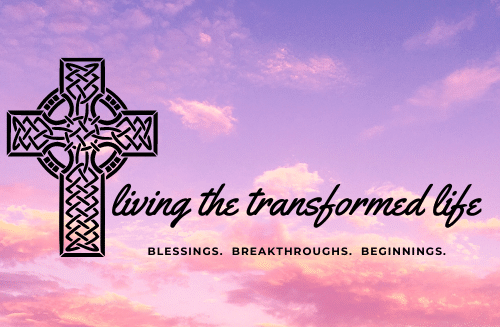 Am I Wrong To Feel Angry?
Am I Wrong To Feel Angry?
When someone has experienced spiritual abuse (or any kind of abuse, for that matter),it is normal to have feelings of anger. But often we have not been taught how to process that anger. In fact, in many situations we may have been taught that it was wrong, even sinful, to have such feelings. When this is coupled with misbeliefs we were taught by well-meaning parents about anger, it can leave us very confused and repressed.
This was my experience. I grew up in what seemed to be an average, ordinary, middle-class family. But tensions seethed below the surface. My father was a workaholic– and a closet alcoholic. My mother had been forced into the role of covering up and hiding his addictions. I believe she resented that. She would often belittle him in front of others, and this would lead to angry arguments.
Although their fights were only verbal, they had a deep impact on me. Their anger sometimes extended to their children, especially (for some unknown reason) their sons. There were times when Dad would lash out in anger at me and call me stupid. There were also several incidents of abuse which deeply traumatized me, and I remember at a very early age making an inner vow that I would never be like him.
Unfortunately that was a promise I couldn’t keep. Because I bore a strong physical resemblance to him, I frequently would hear other adults say, “Oh, he’s just like his father!” These comments made me angry, but I felt I could never express those feelings, so I suppressed them.
 When Church Is Not A Safe Place
When Church Is Not A Safe Place
Years later I entered full-time ministry as a teacher in a Christian school run by our ministry. I had gotten saved when I was 18, and in some ways I looked to the pastor as a substitute father figure. But when his health began to fail, the ministry slowly began to change. He exercised more and more control over my life, and eventually it became a toxic environment. The more his physical health declined, the more he began to denigrate me, just as my father had.
I did not realize what was happening to me at the time. This is common for victims of spiritual abuse. When you’re in survival mode, you often can’t see the abuse and what it’s doing to you. In my case, I was just trying to serve the Lord. I had been taught that we should be submissive to those in authority. I had seen others disagree and raise concerns, only to be rebuked and treated as disloyal, so I learned that I didn’t have the right to voice objections.
In his workshop “The Impact of Trauma On Your Faith,” Pastor David Ruybalid explained, “Spiritual abuse frequently exists when there is a power imbalance that leads to manipulation. Scripture gets twisted and God is misrepresented. Spiritual abuse is accelerated because there’s a sense of failing God. Victims will be confronted with “the heart is deceitful and wicked” to prevent them from listening to their feelings when something is off. They’re taught not to trust their emotions and just believe in the leadership and do what they’re told.”
Ruybalid, who was himself a victim of spiritual abuse at a young age, went on to say, “If you’re in a toxic environment, you’re always scared to share how you really feel about things. Questioning is discouraged, and there’s a fear of punishment (aka “church discipline.”) You’re made to feel that if you’re questioning authority, you’re really questioning God because He’s the one who put that person in authority over you. There’s also the fear of losing community, or a job if you’re on staff.”
This is an apt description of what I went through. I was left feeling frustrated, frightened, and angry. I was both angry at the pastor and angry at myself, because I felt powerless to change the situation. I didn’t expect to be hurt in a place that was supposed to be safe, and I didn’t know what to do.
 What To Do With Anger
What To Do With Anger
Eventually there was a church split, and after leaving the ministry (which imploded shortly afterward), I went through a lengthy healing process. This involved a long period of counseling, because I was dealing with other issues in my life as well. I had to talk through what had happened in order to process the pain and the anger. It was necessary to be able to express that in a safe, nonjudgmental environment.
In the account of Lazarus, there’s an important detail that is often overlooked. You’re probably familiar with the story: Lazarus dies, Jesus comes to his tomb and orders the stone rolled away, He prays and says “Lazarus! Come forth!”– and Lazarus emerges from his tomb.
It’s what happens next that is the important part: “Jesus said to them, “Take off the grave clothes and let him go” (John 11:44b). Other translations say, “Unbind him and let him go.”
Jesus had raised Lazarus from the dead. But when he came out of the tomb, Lazarus was still tightly bound in strips of linen. He could not get free of them on his own, and Jesus directed his disciples to unbind him.
There are many situations where we are like Lazarus, bound and unable to free ourselves. This is where counselors are needed to help us work through issues that are holding us back.
Christian counselor and life coach Holley Gerth says, “Victims of abuse must find one trustworthy individual that they can unburden themselves to without a filter, someone safe and nonjudgmental. You need to be able to reveal those feelings without having to prove their truth and validity. You need to hear someone say, “You are loved, and it’s okay to feel that way.”
She adds, “Some victims of abuse feel sinful when they’re angry. They think they don’t have the right to feel anger because they should forgive. But it’s okay to validate your pain, and feelings don’t cancel out forgiveness.”
 A Biblical Perspective On Anger
A Biblical Perspective On Anger
It’s important to approach our anger from a biblical perspective. In the Old Testament, we frequently see God’s anger expressed through the prophets, and it’s always directed to a positive outcome: repentance and restoration for Israel. God feels angry at injustice, and being hurt in a community where you expect to feel loved and safe is an injustice. It’s okay to feel angry in that situation. Don’t think of anger as something sinful or negative, because anger often leads to things being made right. Realize that the anger you feel is there for a purpose, and it can energize action.
God created all our emotions, including anger. Rather than stifle it, we need to give it a safe place to go. If we continue to repress it, it will be like a beachball held underwater– sooner or later it will resurface! Working through your anger can become a positive part of the healing process. Counseling helped me to be able to do this.
It’s also important to note that some victims of abuse get angry with themselves. They blame themselves, thinking “I never should have let this happen.” But the truth is, God never blames the victim. His heart toward you is always restoration and healing, not condemnation. You need to realize that what happened is not your fault. You couldn’t have prevented it, and you deserve to not be in pain anymore.
One more story to illustrate this. I was able, with the help of counseling and prayer, to forgive both my father and my pastor. But many years later, when my father died, I found myself unable to grieve. Although I knew I had forgiven him, I still felt angry at the things he had said and done which had hurt me and others. I felt trapped by these feelings and I wasn’t able to mourn his death.
I went to my new pastor to talk about this and seek his help. He listened with compassion, then looked in my eyes and simply said, “You have a right to feel angry about that.” When he said that, I felt a huge weight lift off of me. I realized it was okay to feel that way. My feelings did not negate my forgiveness. When I was “given permission” to truly feel those emotions, I was able to let go of them and cry for my father. Acknowledging the anger enabled me to grieve at last.
Another element that some survivors of abuse struggle with is feeling angry toward God. Are we allowed to feel this way? Some might argue that to do so is not honoring God or having the appropriate fear of the Lord. Yet throughout the Psalms, we often see David expressing frustration and even anger at God.
My personal belief is that if you’re feeling angry with God, He can handle that. He’s not offended by our emotions because He still sees our heart and will meet us where we are. Work through that anger, and rest in the assurance that your anger won’t push Him away. God’s own word tells us in Psalm 34:18, “The Lord is close to the brokenhearted.”
It is not a sin to be angry at what happened to you. God sees you and knows all the details. Allow Him to enter into your anger and pain so that He can bring healing. You don’t have to be a victim anymore.
Was this article helpful to you? Leave a comment, and subscribe for more!
Related Posts:
“Spiritual Abuse In The Church Today”
“A Little Lesson From Lazarus”

 When Church Is Not A Safe Place
When Church Is Not A Safe Place What To Do With Anger
What To Do With Anger A Biblical Perspective On Anger
A Biblical Perspective On Anger